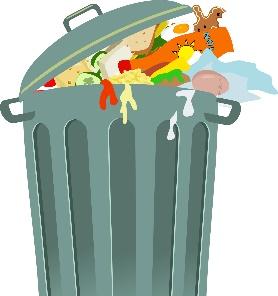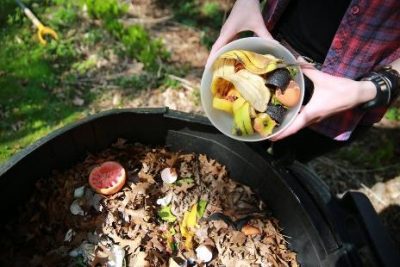
Written by UConn Dietetics Masters student Nikki Santillo
Food waste is a major concern in the United States with about 30-40% of the food supply ending up as waste. Food waste is defined as a reduction in edible food along the food chain.1 This includes food loss during the production of food, storage, shopping, and cooking. Listed below are a few tips to reduce our own personal food waste to do our part in the national issue of food waste.
1. Plan Your Meals
Meal planning is a great option to reduce food waste. On the weekend, for example, you can decide which meals you will have for the week ahead and make a grocery list based on your meal choices. This prevents buying extra food that may end up rotting and need to be thrown out.
2. Utilize the Freezer
Utilizing the freezer is another helpful tip to limit food waste. If you find that your fruits and vegetables go bad quickly, try freezing some of them! Fruits like bananas, strawberries, and blueberries can all be frozen whole and used in your smoothies. To freeze vegetables, it is often best to blanch them first and shock them second.2 To do this, you should start by boiling the vegetables in water for about 2 minutes. The vegetables should still be tender. While the vegetables boil, prepare an ice bath using a large bowl, water, and ice. After about two minutes of boiling, remove the vegetables and place in the ice bath. The vegetables should remain in the ice bath until fully cooled. Drain and lay the vegetables on a sheet pan lined with paper towel to dry the vegetables thoroughly. Once dried, place the vegetables in an air-tight freezer-safe container and keep frozen for up to 18 months. Frozen vegetables can be used for many recipes including vegetable cauliflower fried rice, chicken pot pie, homemade soup, or simply added to a pasta dish.
 3. Start a Compost
3. Start a Compost
No matter how much effort we put into reducing food waste, there will always be some. For example, when we use onions, we must first remove the outer skin layer, and this often ends up in the trash. Similarly, we peel many fruits like bananas and oranges and the peel often goes in the trash or sink compactor. Consider creating a compost pile. Composting is the natural breakdown of organic material with the help of insects and microorganisms.3 Microorganisms are tiny living structures that can be seen only under a microscope. These organisms include bacteria, algae, and fungi. Microorganisms need water, air, food, and comfortable temperature to help decompose food scraps so that they can later be used to keep planting soil nutrient-rich.
Resources:
- https://www.usda.gov/foodwaste/faqs
- https://www.allrecipes.com/article/how-to-freeze-fruits-and-vegetables/
- https://www.epa.gov/recycle/composting-home
This material is funded by UDSA’s Supplemental Nutrition Assistance Program (SNAP).
This institution is an equal opportunity provider.